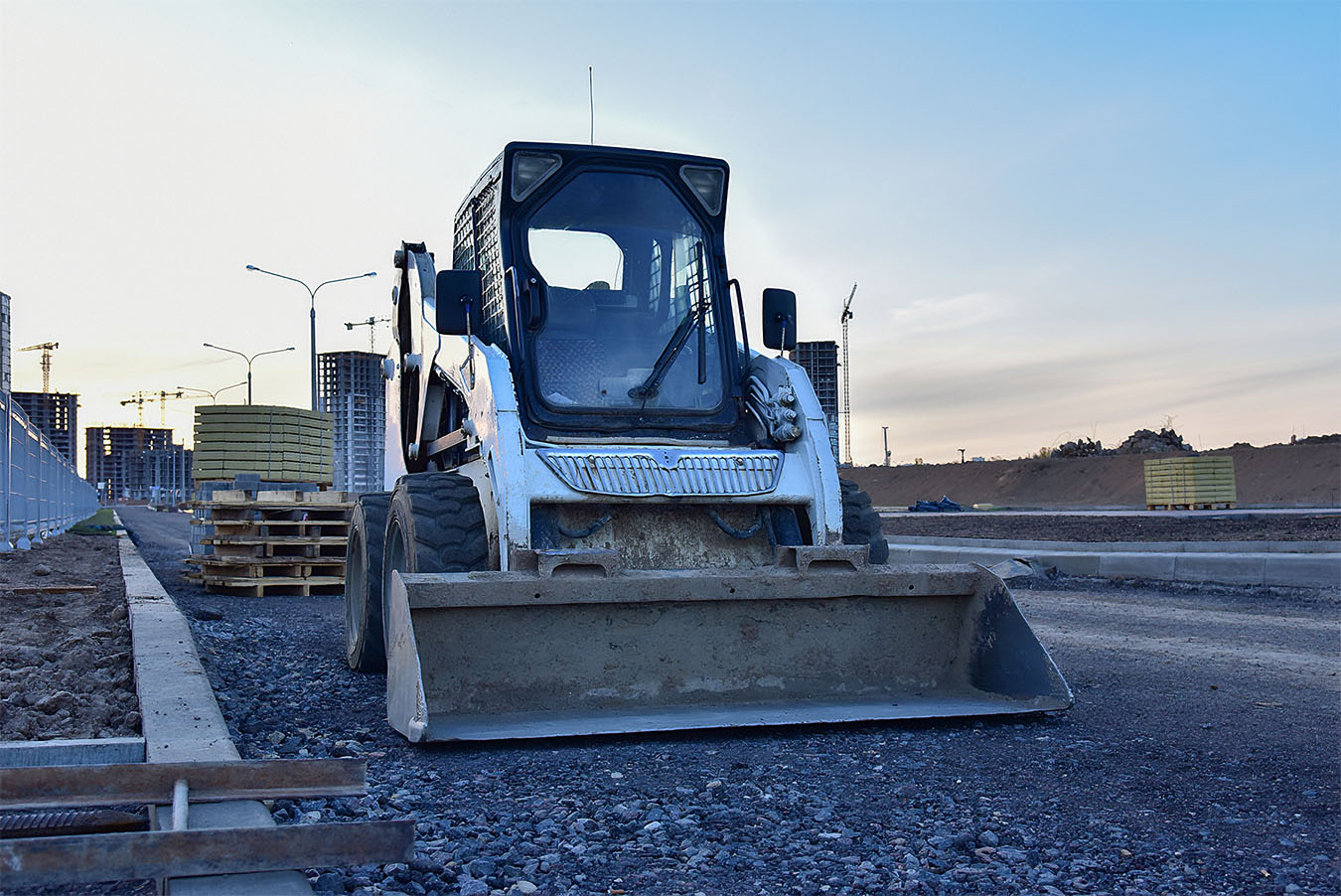Skid loaders are versatile pieces of heavy equipment that can be used for various tasks, including road construction. Skid loaders offer contractors the power to complete even the most challenging road construction projects, from clearing debris to grading and digging. At Vandalia Rental, we provide a wide selection of skid loader models to help contractors do the job efficiently and safely. This blog post will discuss how a skid loader for road construction is more accessible and cost-effective.
What Is a Skid Loader?
A skid loader is a type of heavy equipment used in various construction and landscaping applications. It comprises an engine, transmission, two tracks (or sets of wheels), and a bucket or other attachment. Skid loaders are highly maneuverable, allowing them to work in confined spaces and move in any direction. They also come with attachments that can be added to the machine to make it more versatile, such as a backhoe or pallet forks.
Skid loaders are very powerful machines ideal for road construction and other challenging projects. With their ability to lift and transport large loads with relative ease, skid loaders provide contractors with an efficient and reliable way to complete their tasks quickly and safely. The machine’s powerful engine and durable construction ensure that it can handle difficult jobs, while its compact size makes it perfect for maneuvering tight areas on the job site.
The Benefits of Using a Skid Loader for Road Construction
Skid loaders for road construction projects are invaluable tools. They offer unparalleled agility and power to complete various tasks, making them an excellent choice for contractors looking to meet projects quickly and efficiently.
Skid loaders can quickly move large amounts of dirt and debris, allowing for faster completion of road construction projects. Additionally, they can level out rough surfaces and fill in any holes or bumps that may be present. Skid loaders are also ideal for transporting materials like gravel and asphalt to the work site, which can save time and money.
In addition to their maneuverability, skid loaders provide contractors with the versatility to handle a wide range of tasks on road construction projects. They can handle tasks such as removing old pavement, excavating trenches, and grading surfaces. Skid loaders are equipped with powerful engines and various attachments, allowing contractors to complete almost any job quickly and easily.
Finally, skid loaders are easy to maintain, requiring minimal upkeep from operators. This makes them an excellent option for contractors who need reliable equipment that won’t break down in the middle of a project.
How to Choose the Right Skid Loader for Your Needs
When selecting the right skid loader for road construction projects, there are a few key factors to consider.
The first is the size and power of the loader. Skid loaders come in a variety of sizes and power levels. You want to choose a machine that is powerful enough to move the amount of material you need while also being small enough to fit into tight areas.
Next, consider the attachments you will need. A skid loader is only as good as the attachments it comes with. Depending on the job, you may need buckets, forks, grapples, or other attachments. Make sure you choose a machine that has all the attachments you need.
Finally, take into account your budget. While skid loaders are extremely versatile machines, they can be expensive investments. Make sure you know what you can afford before you start shopping.
With these three factors in mind, you can decide which skid loader for road construction is best for your project.
Final Thoughts
Skid loaders for road construction are incredibly versatile equipment that can make any project much easier and more efficient. They are the perfect solution for contractors looking to complete a job quickly and efficiently. When selecting a skid loader, it is essential to consider factors such as size, lift capacity, and attachments.
Contact us to learn more!


